112 have author last names that start with D have author last names that start with D
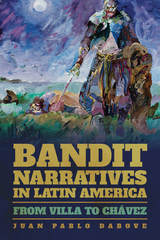
However, the bandit escapes a straightforward definition, since the same label can apply to the leader of thousands of soldiers (as in the case of Villa) or to the humble highwayman eking out a meager living by waylaying travelers at machete point. Dabove presents the reader not with a definition of the bandit, but with a series of case studies showing how the bandit trope was used in fictional and non-fictional narratives by writers and political leaders, from the Mexican Revolution to the present. By examining cases from Argentina, Brazil, Mexico, Peru, and Venezuela, from Pancho Villa’s autobiography to Hugo Chávez’s appropriation of his “outlaw” grandfather, Dabove reveals how bandits function as a symbol to expose the dilemmas or aspirations of cultural and political practices, including literature as a social practice and as an ethical experience.
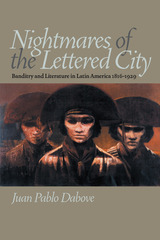
Nightmares of the Lettered City presents an original study of the popular theme of banditry in works of literature, essays, poetry, and drama, and banditry's pivotal role during the conceptualization and formation of the Latin American nation-state.
Juan Pablo Dabove examines writings over a broad time period, from the early nineteenth century to the 1920s, and while Nightmares of the Lettered City focuses on four crucial countries (Argentina, Mexico, Brazil, and Venezuela), it is the first book to address the depiction of banditry in Latin America as a whole. The work offers close reading of Facundo, Doña Bárbara, Os Sertões, and Martín Fierro, among other works, illuminating the ever-changing and often contradictory political agendas of the literary elite in their portrayals of the forms of peasant insurgency labeled “banditry.”
Banditry has haunted the Latin American literary imagination. As a cultural trope, banditry has always been an uneasy compromise between desire and anxiety (a “nightmare”), and Dabove isolates three main representational strategies. He analyzes the bandit as radical other, a figure through which the elites depicted the threats posed to them by various sectors outside the lettered city. Further, he considers the bandit as a trope used in elite internecine struggles. In this case, rural insurgency was a means to legitimize or refute an opposing sector or faction within the lettered city. Finally, Dabove shows how, in certain cases, the bandit was used as an image of the nonstate violence that the nation state has to suppress as a historical force and simultaneously exalt as a memory in order to achieve cultural coherence and actual sovereignty.
As Dabove convincingly demonstrates, the elite's construction of the bandit is essential to our understanding of the development of the Latin American nation in the nineteenth and early twentieth centuries.
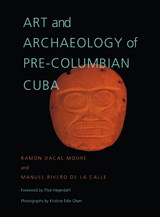
Art and Archaeology of Pre-Columbian Cuba presents a number of works, sixteen reproduced in color, by pre-Columbian artists from the archipelago, covering three millennia of human life in Cuba.
Living under difficult conditions, the first Cubans sculpted their emotions, fears, and hopes on stone, shell, wood, and bones. Much of their art has not previously been available either within or outside of the Caribbean. Ramon Dacal Moure and Manuel Rivero de la Calle describe and interpret the two kinds of prehistoric art found on the island: that of original settlers, the Ciboneys, and that of the Tainos, who had largely replaced the Ciboneys by the time of Columbus.
More than one hundred photographs culled for Cuban museums and collections reveal the superb artistry of the Ciboney and Taino cultures. Idols and amulets carved of stone, coral, and wood; shell masks; stone axes; petroglyphs and pictographs are among the art works never before seen outside of Cuba.
Art and Archaeology of Pre-Columbian Cuba is the first report of archaeological findings in Cuba since 1959 and the first synthesis of Cuban prehistoric art and archaeology since Mark Harrington’s Cuba Before Columbus, published in 1921. Since 1959, Cuban archaeologists have been isolated from research being carried out on other islands in the region, just as other scientists have been unable to work on Cuba or communicate easily with their Cuban colleagues.
While popular interest in and scholarly knowledge of prehistoric art and archaeology have grown in recent years, the Caribbean has been neglected, and Cuba especially. Through Art and Archaeology of Pre-Columbian Cuba, archaeologists and other professionals as well as general readers will come to admire and respect the talent visible in these examples of aboriginal art.

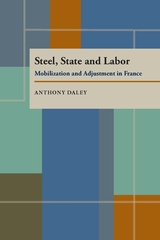
The creation of wealth depends on the capacity of economic actors to adapt to market changes. Such adaptation, in turn, poses fundamental questions about the distribution of resources. Daley investigates the interaction among business, labor, and the state in France in the second half of the twentieth century and reveals how political dynamics refract market pressures. He explains how and why profitability came at the expense of union mobilization, unemployment, and management autonomy, vast amounts of state aid, and less national control over industrial decision making.

A reverent jag of irreverence, tilting forward to arresting moments of beauty, astonishment, confusion, and grief, the poems in David Daniel’s Ornaments find their myths in history and pop culture; they take their truths, but just as much their doubts, from the fallibility of what we remember and the desperation with which we struggle to reassemble it. Surreal, lyrical, madcap, they bring a faith, above all, in poetry. Which means in people and their bewildered hearts.
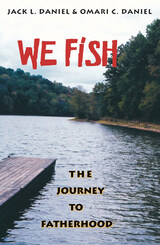
We Fish is the tale of a father and son's shared dialogue in poetry and in prose, memoir and reflection, as they delight in their time spent fishing while considering the universal challenge of raising good children. Their story and their lesson have the power to teach today's young African American men about friendship, family, and trust; and the potential to save a generation from the dangers of the modern world and from themselves.



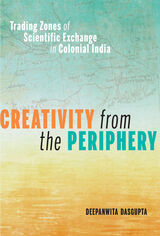
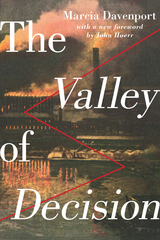
This reissue features a new foreword by noted steel industry historian John Hoerr, author of And the Wolf Finally Came, who places the novel in context as a classic depiction of twentieth-century America.
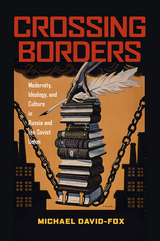
Discussions of Soviet modernity have tended to see the Soviet state either as an archaic holdover from the Russian past, or as merely another form of conventional modernity. David-Fox instead considers the Soviet Union in its own light—as a seismic shift from tsarist society that attracted influential visitors from the pacifist Left to the fascist Right. By reassembling Russian legacies, as he shows, the Soviet system evolved into a complex “intelligentsia-statist” form that introduced an array of novel agendas and practices, many embodied in the unique structures of the party-state. Crossing Borders demonstrates the need for a new interpretation of the Russian-Soviet historical trajectory—one that strikes a balance between the particular and the universal.
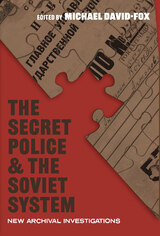
A Penetrating Exploration of the Soviet Secret Police Apparatus
Even more than thirty years after the dissolution of the Soviet Union, the role of the secret police in shaping culture and society in communist USSR has been difficult to study, and defies our complete understanding. In the last decade, the opening of non-Russian KGB archives, notably in Ukraine after 2015, has allowed scholars to explore state security organizations in ways not previously possible. Moving beyond well-known cases of high-profile espionage and repression, this study is the first to showcase research from a wide range of secret police archives in former Soviet republics and the countries of the former Soviet bloc—some of which are rapidly closing or becoming inaccessible once again. Rather than focusing on Soviet leadership, The Secret Police and the Soviet System integrates the secret police into studies of information, technology, economics, art, and ideology. The result is a state-of-the-art portrait of one of the world’s most notorious institutions, the legacies of which are directly relevant for understanding Vladimir Putin’s Russia today.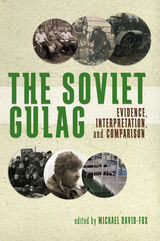
Still, the scale and scope of the Soviet Gulag was unprecedented. Intrinsic to Stalinist modernization, the Gulag was tasked with the construction of massive public works, scientific and engineering projects, and such mundane work as road repairs. Along with the collectivization of agriculture, the Soviet economy (including its military exertions in World War II) was in large part dependent on compulsory labor. The camp system took on an outsized economic significance, and the vast numbers of people taken in by zealous secret police were meant to fulfill material, not just political, goals. While the Soviet system lacked the explicitly dedicated extermination camps of its Nazi counterpart, it did systematically extract work from inmates to the verge of death then cynically “released” them to reduce officially reported mortality rates.
In an original turn, the book offers a detailed consideration of the Gulag in the context of the similar camps and systems of internment. Chapters are devoted to the juxtaposition of nineteenth-century British concentration camps in Africa and India, the Tsarist-era system of exile in Siberia, Chinese and North Korean reeducation camps, the post-Soviet penal system in the Russian Federation, and of course the infamous camp system of Nazi Germany. This not only reveals the close relatives, antecedents, and descendants of the Soviet Gulag—it shines a light on a frighteningly widespread feature of late modernity.
Overall, The Soviet Gulag offers fascinating new interpretations of the interrelationship and importance of the Gulag to the larger Soviet political and economic system, and how they were in fact parts of the same entity.

Fascination and Enmity presents an original transnational history of the two nations during the critical era of the world wars. By examining the mutual perceptions and misperceptions within each country, the contributors reveal the psyche of the Russian-German dynamic and its use as a powerful political and cultural tool.
Through accounts of fellow travelers, POWs, war correspondents, soldiers on the front, propagandists, revolutionaries, the Comintern, and wartime and postwar occupations, the contributors analyze the kinetics of the Russian-German exchange and the perceptions drawn from these encounters. The result is a highly engaging chronicle of the complex entanglements of two world powers through the great wars of the twentieth century.
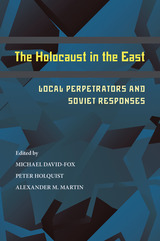
Since its founding, the journal Kritika: Explorations in Russian and Eurasian History has led the way in exploring the East European and Soviet experience of the Holocaust. This volume combines revised articles from the journal and previously unpublished pieces to highlight the complex interactions of prejudice, power, and publicity. It offers a probing examination of the complicity of local populations in the mass murder of Jews perpetrated in areas such as Poland, Ukraine, Bessarabia, and northern Bukovina and analyzes Soviet responses to the Holocaust.
Based on Soviet commission reports, news media, and other archives, the contributors examine the factors that led certain local residents to participate in the extermination of their Jewish neighbors; the interaction of Nazi occupation regimes with various sectors of the local population; the ambiguities of Soviet press coverage, which at times reported and at times suppressed information about persecution specifically directed at the Jews; the extraordinary Soviet efforts to document and prosecute Nazi crimes and the way in which the Soviet state’s agenda informed that effort; and the lingering effects of silence about the true impact of the Holocaust on public memory and state responses.
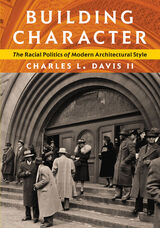

In Inessential Solidarity, Diane Davis examines critical intersections of rhetoric and sociality in order to revise some of rhetorical theory’s basic presumptions. Rather than focus on the arguments and symbolic exchanges through which social relations are defined, Davis exposes an underivable rhetorical imperative, an obligation to respond that is as undeniable as the obligation to age. Situating this response-ability as the condition for, rather than the effect of, symbolic interaction, Davis both dissolves contemporary concerns about linguistic overdetermination and calls into question long-held presumptions about rhetoric’s relationship with identification, figuration, hermeneutics, agency, and judgment.
Spotlighting a rhetorical “situation” irreducible to symbolic relations, Davis proposes quite provocatively that rhetoric—rather than ontology (Aristotle/Heidegger), epistemology (Descartes), or ethics (Levinas)—is “first philosophy.” The subject or “symbol-using animal” comes into being, Davis argues both with and against Emmanuel Levinas, only inasmuch as it responds to the other; the priority of the other is not a matter of the subject's choice, then, but of its inescapable predicament. Directing the reader’s attention to this inessential solidarity without which no meaning-making or determinate social relation would be possible, Davis aims to nudge rhetorical studies beyond the epistemological concerns that typically circumscribe theories of persuasion toward the examination of a more fundamental affectability, persuadability, responsivity.

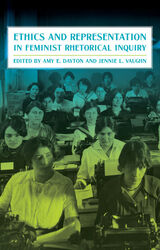
The historiography of feminist rhetorical research raises ethical questions about whose stories are told and how. Women and other marginalized people have been excluded historically from many formal institutions, and researchers in this field often turn to alternative archives to explore how women have used writing and rhetoric to participate in civic life, share their lived experiences, and effect change. Such methods may lead to innovation in documenting practices that took place in local, grassroots settings. The chapters in this volume present a frank conversation about the ways in which feminist scholars engage in the work of recovering hidden rhetorics, and grapple with the ethical challenges raised by this recovery work.
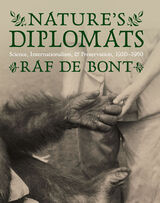
By examining international efforts to protect migratory birds, the threatened European bison, and the mountain gorilla in the interior of the Belgian Congo, Nature’s Diplomats sheds new light on the launch of major international organizations for nature protection in the aftermath of World War II. Additionally, it covers how the rise of ecological science, the advent of the Cold War, and looming decolonization forced a rethinking of approach and rhetoric; and how old ideas and practices lingered on. It provides much-needed historical context for present-day convictions about and approaches to the preservation of species and the conservation of natural resources, the involvement of local communities in conservation projects, the fate of extinct species and vanished habitats, and the management of global nature.
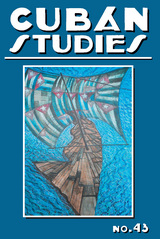
In addition to papers in history, culture and politics, this volume contains a central dossier on demography. This dossier charts some of the important changes experienced by the Cuban population—a concept that of course includes those living abroad—and some of the challenges posed by those changes (such as aging, or the changing composition of the expatriate community). A paper in the dossier looks carefully at infant mortality figures and raises poignant questions concerning methodologies and results.
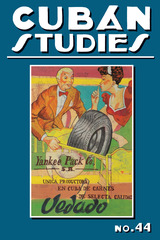
Cuban Studies 44 features a dossier on the Cuban economy that covers economic problems and causation since 2010 and their possible remedy; tax reform from 2010 to 2014; the reconfiguration of social and economic actors since 2011 and the prospects of a market economy; the functioning of state-owned companies within current restructuring policies; and changes in Cuba’s trade deficit since 2009. Other topics include the consequences of the “Special Period” and the de/reconstruction of the “New Socialist Man”; public health care policies in the post-Soviet era; the Wallace Stevens poem “Academic Discourse at Havana”; U.S. General Fitzhugh Lee’s role in Cuban independence; José Martí’s death as a myth of the Cuban nation-building project; “Operation Pedro Pan” and the framing of childhood memories in the Cuban American community; and the social and political control of nonconformists in 1960s Cuba.
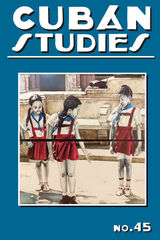
Cuban Studies 45 features two special dossiers: the first discusses the history and workings of the Cuban constitution and the need to revisit it along with civil and political rights; the second offers new perspectives on the history of health, medicine, and disease in Cuba, and views race as a factor in both infant mortality and tuberculosis from the early-to-mid twentieth century.
Additional essays discuss culture through poetry, higher education reform, the narratives of Lordes Casal, and filmmaker Jesús Díaz as an ‘unintentional deviationist.’ History is discussed vis-a-vis the radio politics of young Eddy Chibás, the slave abolitionist rhetoric of the Countess of Merlin, and the creole appropriation of Afro-Cuban dance and music to create sabor during the late nineteenth century.
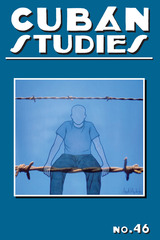
Cuban Studies 46 includes a critical dossier on poet Lourdes Casal, with individual essays viewing the issues of race, feminism, and diaspora in her work. Additional essays address voices of economic change from the nonstate sector; cinema and church during the Special Period; and race, identity, and Cuban women’s activism in historic and cultural contexts.
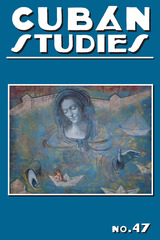
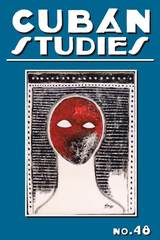
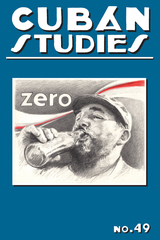
Cuban Studies 49 includes dossiers on gender and feminism, economy, and history of education.
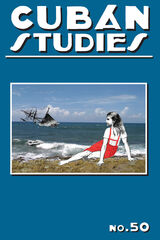
Cuban Studies 50 includes dossiers on new challenges in the private sector and communities of digital media sharing, along with reviews of nearly twenty new books.
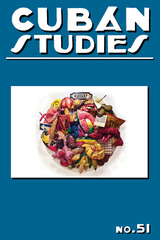
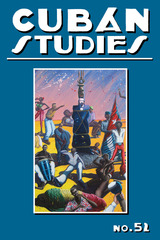


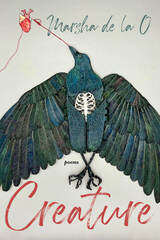
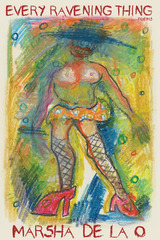
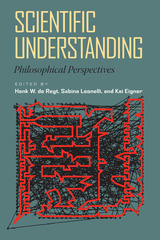
Earlier philosophers, such as Carl Hempel, dismissed understanding as subjective and pragmatic. They believed that the essence of science was to be found in scientific theories and explanations. In Scientific Understanding, the contributors maintain that we must also consider the relation between explanations and the scientists who construct and use them. They focus on understanding as the cognitive state that is a goal of explanation and on the understanding of theories and models as a means to this end.
The chapters in this book highlight the multifaceted nature of the process of scientific research. The contributors examine current uses of theory, models, simulations, and experiments to evaluate the degree to which these elements contribute to understanding. Their analyses pay due attention to the roles of intelligibility, tacit knowledge, and feelings of understanding. Furthermore, they investigate how understanding is obtained within diverse scientific disciplines and examine how the acquisition of understanding depends on specific contexts, the objects of study, and the stated aims of research.
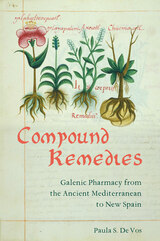
Compound Remedies examines the equipment, books, and remedies of colonial Mexico City’s Herrera pharmacy—natural substances with known healing powers that formed part of the basis for modern-day healing traditions and home remedies in Mexico. Paula S. De Vos traces the evolution of the Galenic pharmaceutical tradition from its foundations in ancient Greece to the physician-philosophers of medieval Islamic empires and the Latin West and eventually through the Spanish Empire to Mexico, offering a global history of the transmission of these materials, knowledges, and techniques. Her detailed inventory of the Herrera pharmacy reveals the many layers of this tradition and how it developed over centuries, providing new perspectives and insight into the development of Western science and medicine: its varied origins, its engagement with and inclusion of multiple knowledge traditions, the ways in which these traditions moved and circulated in relation to imperialism, and its long-term continuities and dramatic transformations. De Vos ultimately reveals the great significance of pharmacy, and of artisanal pursuits more generally, as a cornerstone of ancient, medieval, and early modern epistemologies and philosophies of nature.
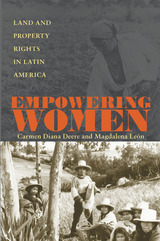
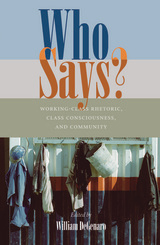
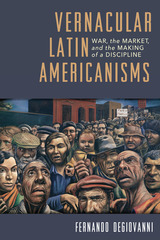
In Vernacular Latin Americanisms, Fernando Degiovanni offers a long-view perspective on the intense debates that shaped Latin American studies and still inform their function in the globalized and neoliberal university of today. By doing so he provides a reevaluation of a field whose epistemological and political status has obsessed its participants up until the present. The book focuses on the emergence of Latin Americanism as a field of critical debate and scholarly inquiry between the 1890s and the 1960s. Drawing on contemporary theory, intellectual history, and extensive archival research, Degiovanni explores in particular how the discourse and realities of war and capitalism have left an indelible mark on the formation of disciplinary perspectives on Latin American cultures in both the United States and Latin America. Questioning the premise that Latin Americanism as a discipline comes out of the tradition of continental identity developed by prominent intellectuals such as José Martí, José E. Rodó or José Vasconcelos, Degiovanni proposes that the scholars who established the discipline did not set out to defend Latin America as a place of uncontaminated spiritual values opposed to a utilitarian and materialist United States. Their mission was entirely different, even the opposite: giving a place to culture in the consolidation of alternative models of regional economic cooperation at moments of international armed conflict. For scholars theorizing Latin Americanism in market terms, this meant questioning nativist and cosmopolitan narratives about identity; it also meant abandoning any Bolivarian project of continental unity or of socialist internationalism.
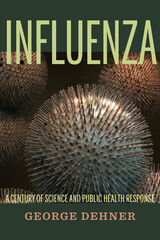
In 1976, the outbreak of a new strain of swine flu at the Fort Dix, New Jersey, army base prompted an unprecedented inoculation campaign. Some forty-two million Americans were vaccinated as the National Influenza Immunization Program hastened to prevent a pandemic, while the World Health Organization (WHO) took a wait-and-see approach. Fortunately, the virus did not spread, and only one death occurred. But instead of being lauded, American actions were subsequently denounced as a “fiasco” and instigator of mass panic.
In Influenza, George Dehner examines the wide disparity in national and international responses to influenza pandemics, from the Russian flu of 1889 to the swine flu outbreak in 2009. He chronicles the technological and institutional progress made along the way and shows how these developments can shape an effective future policy.
Early pandemic response relied on methods of quarantine and individual scientific research. In the aftermath of World War II, a consensus for cooperation and shared resources led to the creation of the WHO, under the auspices of the United Nations. Today, the WHO maintains a large and proactive role in responding to influenza outbreaks. International pandemic response, however, is only as strong as its weakest national link—most recently evidenced in the failed early detection of the 2009 swine flu in Mexico and the delayed reporting of the 2002 SARS outbreak in China.
As Dehner’s study contends, the hard lessons of the past highlight the need for a coordinated early warning system with full disclosure, shared technologies, and robust manufacturing capabilities. Until the “national” aspect can be removed from the international equation, responses will be hampered, and a threat to an individual remains a threat to all.
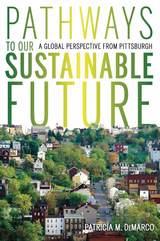
Pittsburgh has a rich history of social consciousness in calls for justice and equity. Today, the movement for more sustainable practices is rising in Pittsburgh. Against a backdrop of Marcellus shale gas development, initiatives emerge for a sustainable and resilient response to the climate change and pollution challenges of the twenty-first century. People, institutions, communities and corporations in Pittsburgh are leading the way to a more sustainable future.
Examining the experience of a single city, with all of its social and political complexities and long industrial history, allows a deeper understanding of the challenges and opportunities inherent in adapting to a changing world. Choices for more sustainable pathways for the future include transforming the energy system, restoring infertile ground, and preventing pollution through green chemistry production. Throughout the book, case studies responding to ethical challenges give specific examples of successful ways forward. Inspired by Rachel Carson’s voice of precaution in protecting the Earth, this is a book about empowerment and hope.
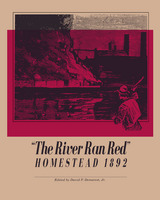
"The River Ran Red" commemorates the one-hundredth anniversary of the Homestead strike of 1892. Instead of retelling the story of the strike, it recreates the events of that summer in excerpts from contemporary newspapers and magazines, reproductions of pen-and-ink sketches and photographs made on the scene, passages from the congressional investigation that resulted from the strike, first-hand accounts by observers and participants, and poems, songs, and sermons from across the country. Contributions by outstanding scholars provide the context for understanding the social and cultural aspects of the strike, as well as its violence.
"The River Ran Red" is the collaboration of a team of writers, archivists, and historians, including Joseph Frazier Wall, who writes of the role of Andrew Carnegie at Homestead, and David Montgomery, who considers the significance of the Homestead Strike for the present. The book is both readable and richly illustrated. It recalls public and personal reactions to an event in our history who's reverberations can still be felt today.

Winner, 2023 SAH Alice Davis Hitchcock Book Award
Three Cities after Hitler compares how three prewar German cities shared decades of postwar development under three competing post-Nazi regimes: Frankfurt in capitalist West Germany, Leipzig in communist East Germany, and Wrocław (formerly Breslau) in communist Poland. Each city was rebuilt according to two intertwined modern trends. First, certain local edifices were chosen to be resurrected as “sacred sites” to redeem the national story after Nazism. Second, these tokens of a reimagined past were staged against the hegemony of modernist architecture and planning, which wiped out much of whatever was left of the urban landscape that had survived the war. All three cities thus emerged with simplified architectural narratives, whose historically layered complexities only survived in fragments where this twofold “redemptive reconstruction” after Nazism had proven less vigorous, sometimes because local citizens took action to save and appropriate them. Transcending both the Iron Curtain and freshly homogenized nation-states, three cities under three rival regimes shared a surprisingly common history before, during, and after Hitler—in terms of both top-down planning policies and residents’ spontaneous efforts to make home out of their city as its shape shifted around them.
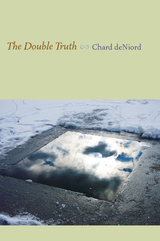

The poets testify to the demotic nature of poetry as a charged language that speaks uniquely in original voices, yet appeals universally. As individuals with their own transpersonal stories, the poets have emerged onto the national stage from very local places with news that witnesses memorably in social, personal, and political ways. They talk about their poems and development as poets self-effacingly, honestly, and insightfully, describing just how and when they were "hurt into poetry," as well as why they have pursued writing poetry as a career in which, as Robert Frost noted in his poem "Two Tramps in Mud Time," their object has become "to unite [their] avocation and [their] vocation / As [their] two eyes make one in sight."
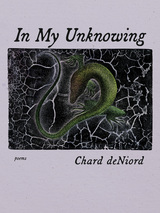
I WEPT WITH JOY ABOVE THE RIVER
I wept with joy above the river.
I wept with sorrow above the river.
My tears were clear, both sweet and bitter.
One leaf cried out to another,
“Empty me today of all my color.
Fill me tomorrow with a shot of sugar.”
This was the still ritual for my feet:
To stand on the earth that took of earth earth with ill and sing.
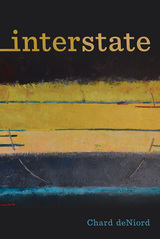


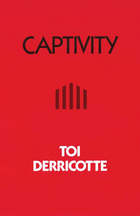

Finalist, 2019 National Book Award
Honorable Mention, 2020 BCALA Literary Awards
Toi Derricotte’s story is a hero’s journey—a poet earning her way home, to her own commanding powers. “I”: New and Selected Poems shows the reader both the closeness of the enemy and the poet’s inherent courage, inventiveness, and joy. It is a record of one woman’s response to the repressive and fracturing forces around the subjects of race, class, color, gender, and sexuality. Each poem is an act of victory as the author finds her way through repressive forces to speak with beauty and truth.
This collection features more than thirty new poems as well as selections from five previous collections.
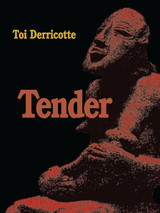
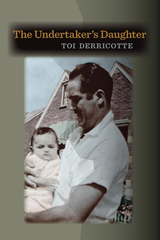
“Poems that stick with you like a song that won’t stop repeating itself in your brain, poems whose cadences burrow into your bloodstream, orchestrating your breathing long before their sense attaches its hooks to your heart.”
—Washington Post on Captivity
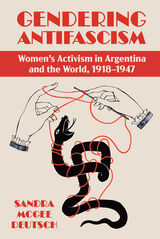
A History of the Women’s Antifascism Movement in Argentina that Contains Lessons for Opposing Fascism Today
Argentine women’s long resistance to extreme rightists, tyranny, and militarism culminated in the Junta de la Victoria, or Victory Board, a group that organized in the aftermath of the German invasion of the Soviet Union in defiance of the neutralist and Axis-leaning government in Argentina. A sewing and knitting group that provided garments and supplies for the Allied armies in World War II, the Junta de la Victoria was a politically minded association that mobilized women in the fight against fascism. Without explicitly characterizing itself as feminist, the organization promoted women’s political rights and visibility and attracted forty-five thousand members. The Junta ushered diverse constituencies of Argentine women into political involvement in an unprecedented experiment in pluralism, coalition-building, and political struggle. Sandra McGee Deutsch uses this internationally minded but local group to examine larger questions surrounding the global conflict between democracy and fascism.

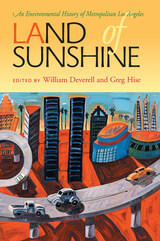
Most people equate Los Angeles with smog, sprawl, forty suburbs in search of a city-the great "what-not-to-do" of twentieth-century city building. But there's much more to LA's story than this shallow stereotype. History shows that Los Angeles was intensely, ubiquitously planned. The consequences of that planning-the environmental history of urbanism--is one place to turn for the more complex lessons LA has to offer.
Working forward from ancient times and ancient ecologies to the very recent past, Land of Sunshine is a fascinating exploration of the environmental history of greater Los Angeles. Rather than rehearsing a litany of errors or insults against nature, rather than decrying the lost opportunities of "roads not taken," these essays, by nineteen leading geologists, ecologists, and historians, instead consider the changing dynamics both of the city and of nature.
In the nineteenth century, for example, "density" was considered an evil, and reformers struggled mightily to move the working poor out to areas where better sanitation and flowers and parks "made life seem worth the living."
We now call that vision "sprawl," and we struggle just as much to bring middle-class people back into the core of American cities. There's nothing natural, or inevitable, about such turns of events. It's only by paying very close attention to the ways metropolitan nature has been constructed and construed that meaningful lessons can be drawn. History matters.
So here are the plants and animals of the Los Angeles basin, its rivers and watersheds. Here are the landscapes of fact and fantasy, the historical actors, events, and circumstances that have proved transformative over and over again. The result is a nuanced and rich portrait of Los Angeles that will serve planners, communities, and environmentalists as they look to the past for clues, if not blueprints, for enhancing the quality and viability of cities.

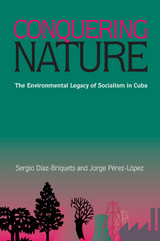
Conquering Nature provides the only book-length analysis of the environmental situation in Cuba after four decades of socialist rule, based on extensive examination of secondary sources, informed by the study of development and environmental trends in former socialist countries as well as in the developing world. It approaches the issue comprehensively and from interdisciplinary, comparative, and historical perspectives. Based on the Cuban example, Díaz-Briquets and Pérez-López challenge the concept that environmental disruption was not supposed to occur under socialism since it was alleged that guided by scientific policies, socialism could only beget environmentally benign economic development. In reality, the socialist environmental record proved to be far different from the utopian view.
Between the early 1960s and the late 1980s the environmental situation worsened despite Cuba’s achieving one of the lowest population growth rates in the world and having eliminated extreme living standard differentials in rural areas, two of the primary reasons often blamed for environmental deterioration in developing countries. The government’s approach was to “conquer nature” and under its central planning approach, it did not take local circumstances into consideration. This disregard for the environmental consequences of development projects continues to this day despite official allegations to the contrary—as the country pursues an economic survival strategy based on the crash development of the tourist sector and exploitation of natural resources. An underlying conclusion of the book is that the environmental legacy of socialism will present serious challenges to future Cuban generations.
Conquering Nature provides, for the first time, a relevant analysis of socialist environmental policies of a developing country. It will be of interest to students and scholars of Cuba and those interested in environmental issues in developing countries.
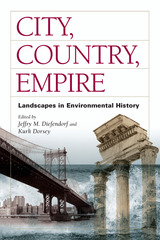
In the urgently expanding field of environmental history, two trends are emerging. Research has internationalized, crossing political and historical borders. And urban spaces are increasingly seen as part of, not apart from, the global environment. In this book, Jeffry Diefendorf and Kurk Dorsey have gathered much of the important work pushing the field in new directions. Eleven essays by prominent and regionally diverse scholars address how human and natural forces collaborate in the creation of cities, the countryside, and empires.
The Cities section features essays that examine pollution and its aftermath in Pittsburgh, the Ruhr Valley (Germany), and Los Angeles. These urban areas are far apart on the globe but closely linked in their histories of how human decision making has affected the environment.
Changing rural and suburban spaces are the focus of Countryside. Elizabeth Blackmar "follows the money" in order to understand why the financing of suburban mall developments makes local resistance difficult. Studies of the fractious history of the creation of a wildlife refuge in Oregon and the ongoing impact of hydraulic mining in the early California goldmining era emphasize the misuse of technology in rural spaces.
Such misuse is a central idea of Empires. In "When Stalin Learned to Fish," Paul R. Josephson tells the story of Soviet fishing technology designed to "harness fish to the engine of socialism." Other essays explore the failures of Western agricultural technology in Africa and the relationship between such technology and disease in European attempts to conquer the Caribbean. In a stirring, wide-ranging consideration of the neo-European colonies (the United States, Australia, Canada, and New Zealand), Thomas R. Dunlap observes the ongoing, unsettled interaction of lands and dreams. An afterword by Alfred W. Crosby, an eminent scholar of environmental history, closes the book with a broad and insightful synthesis of the history and future of this critical field.
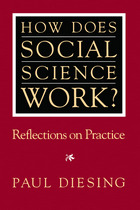
The culmination of a lifetime spent in a variety of fields - sociology, anthropology, economics, psychology, and philosophy of science - -How Does Social Science Work? takes an innovative, sometimes iconoclastic look at social scientists at work in many disciplines. It describes how they investigate and the kinds of truth they produce, illuminating the weaknesses and dangers inherent in their research.
At once an analysis, a critique, and a synthesis, this major study begins by surveying philosophical approaches to hermeneutics, to examine the question of how social science ought to work. It illustrates many of its arguments with untraditional examples, such as the reception of the work of the political biographer Robert Caro to show the hermeneutical problems of ethnographers. The major part of the book surveys sociological, political, and psychological studies of social science to get a rounded picture of how social science works,
Paul Diesling warns that “social science exists between two opposite kinds of degeneration, a value-free professionalism that lives only for publications that show off the latest techniques, and a deep social concern that uses science for propaganda.” He argues for greater self-awareness and humility among social scientists, although he notes that “some social scientists . . . will angrily reject the thought that their personality affects their research in any way.”
This profound and sometimes witty book will appeal to students and practitioners in the social sciences who are ready to take a fresh look at their field. An extensive bibliography provides a wealth of references across an array of social science disciplines.
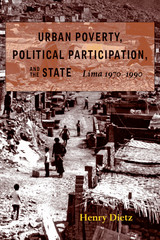

Networking Arguments presents an original study on the use and misuse of global institutional rhetoric and the effects of these practices on women, particularly in developing countries. Using a feminist lens, Rebecca Dingo views the complex networks that rhetoric flows through, globally and nationally, and how it’s often reconfigured to work both for and against women and to maintain existing power structures.
To see how rhetorics travel, Dingo deconstructs the central terminology employed by global institutions—mainstreaming, fitness, and empowerment—and shows how their meanings shift depending on the contexts in which they’re used. She studies programs by the World Bank, the United Nations, and the United States, among others, to view the original policies, then follows the trail of their diffusion and manipulation and the ultimate consequences for individuals.
To analyze transnational rhetorical processes, Dingo builds a theoretical framework by employing concepts of transcoding, ideological traffic, and interarticulation to uncover the intricacies of power relationships at work within networks. She also views transnational capitalism, neoliberal economics, and neocolonial ideologies as primary determinants of policy and arguments over women’s roles in the global economy.
Networking Arguments offers a new method of feminist rhetorical analysis that allows for an increased understanding of global gender policies and encourages strategies to counteract the negative effects they can create.

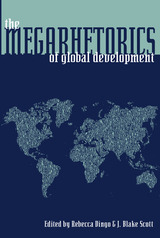
After World War II, an unprecedented age of global development began. The formation of the World Bank and the International Monetary Fund allowed war torn and poverty stricken nations to become willing debtors in their desire to entice Western investment and trade. New capital, it was foretold, would pave the way to political and economic stability, and the benefits would “trickle down” to even the poorest citizens. The hyperbole of this neocolonialism, however, has left many of these countries with nothing but compounded debt and unfulfilled promises.
The Megarhetorics of Global Development examines rhetorical strategies used by multinational corporations, NGOs, governments, banks, and others to further their own economic, political, or technological agendas. These wide-ranging case studies employ rhetorical theory, globalization scholarship, and analysis of cultural and historical dynamics to offer in-depth critiques of development practices and their material effects. By deconstructing megarhetorics, at both the local and global level, and following their paths of mobilization and diffusion, the concepts of “progress” and “growth” can be reevaluated, with the end goal of encouraging self-sustaining and ethical outcomes.
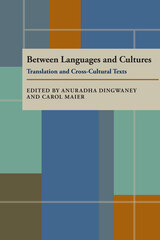
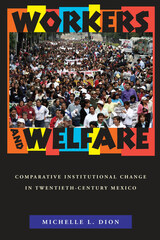
By focusing on organized labor, and its powerful role in effecting institutional change, Workers and Welfare chronicles the development and evolution of Mexican social insurance institutions in the twentieth century. Beginning with the antecedents of social insurance and the adoption of pension programs for central government workers in 1925, Dion's analysis shows how the labor movement, up until the 1990s, was instrumental in expanding welfare programs, but has since become largely ineffective. Despite stepped-up efforts, labor has seen the retrenchment of many benefits. Meanwhile, Dion cites the debt crisis, neoliberal reform, and resulting changes in the labor market as all contributing to a rise in poverty. Today, Mexican welfare programs emphasize poverty alleviation, in a marked shift away from social insurance benefits for the working class.
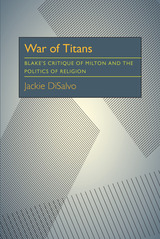
In a dramatically original analysis, Jackie DiSalvo explores Blake’s reworking of Genesis and Paradise Lost in his prophetic poem The Four Zoas, creating a compelling new reading of both Milton and Blake. With informed argument and provocative insights, DiSalvo shows how Blake’s view of history prefigures the revaluation of our own myths of origin prompted by new political, psychological, and feminist perspectives.

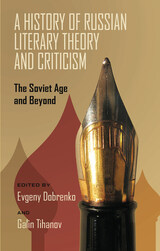
This volume assembles the work of leading international scholars in a comprehensive history of Russian literary theory and criticism from 1917 to the post-Soviet age. By examining the dynamics of literary criticism and theory in three arenas—political, intellectual, and institutional—the authors capture the progression and structure of Russian literary criticism and its changing function and discourse.
The chapters follow early movements such as formalism, the Bakhtin Circle, Proletklut, futurism, the fellow-travelers, and the Russian Association of Proletarian Writers. By the cultural revolution of 1928, literary criticism became a mechanism of Soviet policies, synchronous with official ideology. The chapters follow theory and criticism into the 1930s with examinations of the Union of Soviet Writers, semantic paleontology, and socialist realism under Stalin. A more “humanized” literary criticism appeared during the ravaging years of World War II, only to be supplanted by a return to the party line, Soviet heroism, and anti-Semitism in the late Stalinist period. During Khrushchev’s Thaw, there was a remarkable rise in liberal literature and criticism, that was later refuted in the nationalist movement of the “long” 1970s. The same decade saw, on the other hand, the rise to prominence of semiotics and structuralism. Postmodernism and a strong revival of academic literary studies have shared the stage since the start of the post-Soviet era.
For the first time anywhere, this collection analyzes all of the important theorists and major critical movements during a tumultuous ideological period in Russian history, including developments in émigré literary theory and criticism.

WINNER OF THE 2007 DONALD HALL PRIZE IN POETRY
Selected by Bob Hicok
Burn and Dodge is part serious/part serious play and opens with a frank and occasionally antic exploration of contemporary vices, such as Guilt, Envy, and Regret. Some poems “dodge” such preoccupations by playing with a nonce form called sonnet/ghazal. The collection contains a sequence of poems called “Current Events,” based on newspaper stories. that is also a playful meditation on the nature of the interrogative pronouns (Who, What, Where, When . . . ) as well as another series of homophonic sonnets called “Clare-Hewn,” which are aural “translations” of John Clare.

Imperfect Present is a book for our current moment. By confronting the urgencies of daily life, from questions of identity to sexual abuse to racial unrest to the ubiquity of plastic, these poems investigate ways to sustain ourselves in our fraught public and private lives. With her characteristic linguistic play, Sharon Dolin illuminates some of the most personal concerns that resonate throughout our culture and in ourselves, such as error, despair, uncertainty, and doubt. In sections that deploy the lens of art, the “Oblique Strategies” of Brian Eno and Peter Schmidt, and meditations on dreams and spirituality, Imperfect Present provides a panoply of approaches that grapple with the complexity of now.
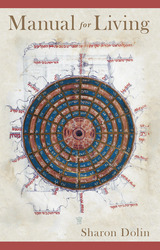


Since the late 1950s the world's banks have expanded their global operations, with US institutions leading the way. As the recent global economic crisis shows, actions of private bankers can threaten capital markets, weaken national regulatory systems, and strain international cooperation-seriously endangering the world economy and the interests of nation states.



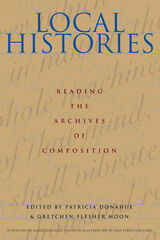
In Local Histories, the contributors seek to challenge the widely held belief that the origin of American composition as a distinguishable discipline can be traced to a small number of elite colleges such as Harvard, Yale, and Michigan in the mid- to late nineteenth century. Through extensive archival research at liberal arts colleges, normal schools, historically black colleges, and junior colleges, the contributors ascertain that many of these practices were actually in use prior to this time and were not the sole province of elite universities. Though not discounting the elites' influence, the findings conclude that composition developed in many locales concurrently.
Individual chapters reflect on student responses to curricula, the influence of particular instructors or pedagogies in the context of compositional history, and the difficulties inherent in archival research. What emerges is an original and significant study of the developmental diversity within the discipline of composition that opens the door to further examination of local histories as guideposts to the origins of composition studies.
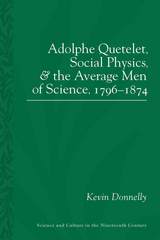



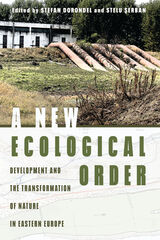
The rise of industrial capitalism in the nineteenth century forged a new ecological order in North American and Western European states, radically transforming the environment through science and technology in the name of human progress. Far less known are the dramatic environmental changes experienced by Eastern Europe, in many ways a terra incognita for environmental historians and anthropologists. A New Ecological Order explores, from a historical and ethnographic perspective, the role of state planners, bureaucrats, and experts—engineers, agricultural engineers, geographers, biologists, foresters, and architects—as agents of change in the natural world of Eastern Europe from 1870 to the early twenty-first century.
Contributors consider territories engulfed by empires, from the Habsburg to the Ottoman to tsarist Russia; territories belonging to disintegrating empires; and countries in the Balkan Peninsula, Central and Eastern Europe, and Eurasia. Together, they follow a rhetoric of “correcting nature,” a desire to exploit the natural environment and put its resources to work for the sake of developing the economies and infrastructures of modern states. They reveal an eagerness among newly established nation-states, after centuries of imperial economic and political impositions, to import scientific knowledge and new technologies from Western Europe that would aid in their economic development, and how those imports and ideas about nature ultimately shaped local projects and policies.


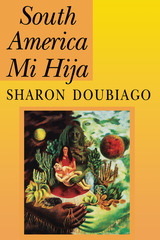
When Shawn Doubiago graduated from high school, she and her mother Sharon, embarked on a journey through Colombia, Ecuador, and Peru. In Cuzco, Peru, standing before an alter where the Incas had sacrifced their female virgins, the daughter asked, “Are there any good men?” South American Mi Hija is Sharon Doubiago’s reply.
Set amidst the mysteries and tragedies of South American culture, this book-length narrative poem is both an account of their journey and a feminist exploration of the struggle between the sexes.

Based on a thorough investigation of underground publications and interviews with important activists of the period from 1976-1989, Doucette shows how the independent press, rooted in the long Polish tradition of well-organized resistance to foreign occupation, reshaped this tradition to embrace nonviolent civil resistance while creating a network that evolved from a small group of dissidents into a broad opposition movement with cross-national ties and millions of sympathizers. It was the galvanizing force in the resistance to communism and the rebuilding of Poland’s democratic society.
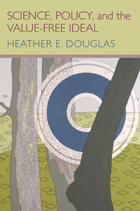
The role of science in policymaking has gained unprecedented stature in the United States, raising questions about the place of science and scientific expertise in the democratic process. Some scientists have been given considerable epistemic authority in shaping policy on issues of great moral and cultural significance, and the politicizing of these issues has become highly contentious.
Since World War II, most philosophers of science have purported the concept that science should be “value-free.” In Science, Policy and the Value-Free Ideal, Heather E. Douglas argues that such an ideal is neither adequate nor desirable for science. She contends that the moral responsibilities of scientists require the consideration of values even at the heart of science. She lobbies for a new ideal in which values serve an essential function throughout scientific inquiry, but where the role values play is constrained at key points, thus protecting the integrity and objectivity of science. In this vein, Douglas outlines a system for the application of values to guide scientists through points of uncertainty fraught with moral valence.
Following a philosophical analysis of the historical background of science advising and the value-free ideal, Douglas defines how values should-and should not-function in science. She discusses the distinctive direct and indirect roles for values in reasoning, and outlines seven senses of objectivity, showing how each can be employed to determine the reliability of scientific claims. Douglas then uses these philosophical insights to clarify the distinction between junk science and sound science to be used in policymaking. In conclusion, she calls for greater openness on the values utilized in policymaking, and more public participation in the policymaking process, by suggesting various models for effective use of both the public and experts in key risk assessments.

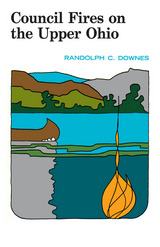
Told from the viewpoint of the Indians, this account of Indian-white relations during the second half of the eighteenth century is an exciting addition to the historical literature of Pennsylvania.
From the beginning, when the white traders followed the first Shawnee hunters into Pennsylvania, until the Battle of Fallen Timbers in 1794, the region’s history was the history of the relationship between the Indians and the whites. For nearly half a century the Indian maintained a precarious hold upon Western Pennsylvania by playing one white faction off against the anther, first the French against the British, then the British against the Americans.
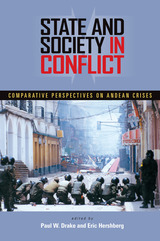
State and Society in Conflict analyzes one of the most volatile regions in Latin America, the Andean states of Colombia, Venezuela, Ecuador, Peru, and Bolivia. For the last twenty-five years, crises in these five Andean countries have endangered Latin America's democracies and strained their relations with the United States. As these nations struggle to cope with demands from Washington on security policies (emphasizing drugs and terrorism), neoliberal economics, and democratic politics, their resulting domestic travails can be seen in poor economic growth, unequal wealth distribution, mounting social unrest, and escalating political instability.
The contributors to this volume examine the histories, politics, and cultures of the Andean nations, and argue that, due to their shared history and modern circumstances, these countries are suffering a shared crisis of deteriorating relations between state and society that is best understood in regional, not purely national, terms. The results, in some cases, have been semi-authoritarian hybrid regimes that lurch from crisis to crisis, often controlled through force, though clinging to a notion of democracy. The solution to these problems--whether through democratic, authoritarian, peaceful, or violent means--will have profound implications for the region and its future relations with the world.
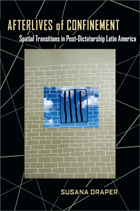
The afterlife of prisons became an important tool in the “forgetting” of past politics, while also serving as a reminder to citizens of the liberties they now enjoyed. In Draper’s analysis, these symbols led the populace to believe they had attained freedom, although they had only witnessed the veneer of democracy—in the ability to vote and consume.
In selected literary works by Roberto Bolaño, Eleuterio Fernández Huidoboro, and Diamela Eltit and films by Alejandro Agresti and Marco Bechis, Draper finds further evidence of the emptiness and melancholy of underachieved goals in the afterlife of dictatorships. The social changes that did not occur, the inability to effectively mourn the losses of a now-hidden past, the homogenizing effects of market economies, and a yearning for the promises of true freedom are thematic currents underlying much of these texts.
Draper’s study of the manipulation of culture and consumerism under the guise of democracy will have powerful implications not only for Latin Americanists but also for those studying neoliberal transformations globally.
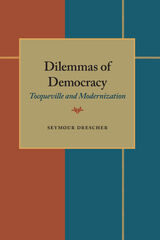
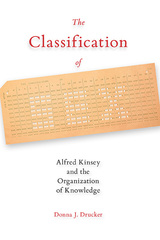
Kinsey’s doctoral work included extensive research of the gall wasp, where he gathered and recorded variations in over six million specimens. His classification and reclassification of Cynips led to the speciation of the genus that remains today. During his graduate training, Kinsey developed a strong interest in evolution and the links between entomological and human behavior studies. In 1920, he joined Indiana University as a professor in zoology, and soon published an introductory text on biology, followed by a coauthored field guide to edible wild plants.
In 1938, Kinsey began teaching a noncredit course on marriage, where he openly discussed sexual behavior and espoused equal opportunity for orgasmic satisfaction in marital relationships. Soon after, he began gathering case histories of sexual behavior. As a pioneer in the nascent field of sexology, Kinsey saw that the key to its cogency was grounded in observation combined with the collection and classification of mass data. To support the institutionalization of his work, he cofounded the Institute for Sex Research at Indiana University in 1947. He and his staff eventually conducted over eighteen thousand personal interviews about sexual behavior, and in 1948 he published Sexual Behavior in the Human Male, to be followed in 1953 by Sexual Behavior in the Human Female.
As Drucker’s study shows, Kinsey’s scientific rigor and his early use of data recording methods and observational studies were unparalleled in his field. Those practices shaped his entire career and produced a wellspring of new information, whether he was studying gall wasp wings, writing biology textbooks, tracing patterns of evolution, or developing a universal theory of human sexuality.
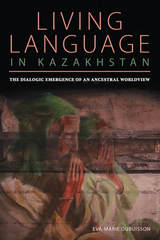
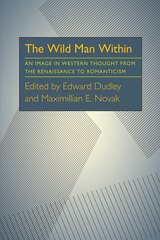
These essays trace the myth of the wild man from the Middle Ages to its disintegration into symbol in the periods following the discovery of America and encounter with real “wild men.” This is the first book to discuss the concept of wildness in the writings of the Enlightenment period in Western Europe and the first to attempt a broad, interdisciplinary approach to the subject of primitivism, not only from a strict “history of ideas” approach, but through discussions of individual works, both literary and political, and encompassing various subject matter from racism to the origins of language.
Contributors: Richard Ashcraft; Ehrhard Bahr; John G. Burke; Earl Miner; Gary B. Nash; Stanley Robe; Geoffrey Symcox; Peter Thoralev; Hayden V. White, and the editors.
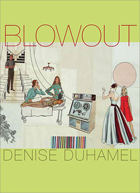
In Blowout, Denise Duhamel asks the same question that Frankie Lyman & the Teenagers asked back in 1954—"Why Do Fools Fall in Love?" Duhamel's poems readily admit that she is a love-struck fool, but also embrace the "crazy wisdom" of the Fool of the Tarot deck and the fool as entertainer or jester. From a kindergarten crush to a failed marriage and beyond, Duhamel explores the nature of romantic love and her own limitations. She also examines love through music, film, and history—Michelle and Barak Obama's inauguration and Cleopatra's ancient sex toy. Duhamel chronicles the perilous cruelties of love gone awry, but also reminds us of the compassion and transcendence in the aftermath. In "Having a Diet Coke with You," she asserts that "love poems are the most difficult poems to write / because each poem contains its opposite its loss / and that no matter how fierce the love of a couple / one of them will leave the other / if not through betrayal / then through death." Yet, in Blowout, Duhamel fiercely and foolishly embraces the poetry of love.
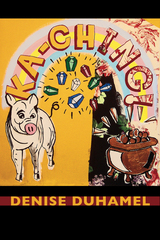
READERS
Browse our collection.
PUBLISHERS
See BiblioVault's publisher services.
STUDENT SERVICES
Files for college accessibility offices.
UChicago Accessibility Resources
home | accessibility | search | about | contact us
BiblioVault ® 2001 - 2024
The University of Chicago Press









